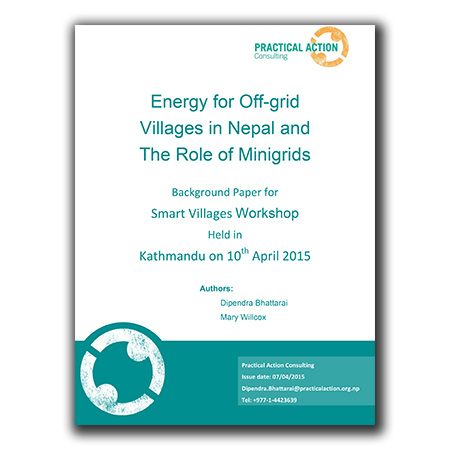The InnovateUK Energy Catalyst and working with SVRG partners
Recently, we were invited to give a presentation by our colleagues at the UK Low Carbon Energy for Development Network (UK LCEDN), as part of a webinar they were running on “Transforming Energy Access” for organisations who were interested in applying for the latest Innovate UK Energy Catalyst (round 8) competition, closing in September 2020. …
The InnovateUK Energy Catalyst and working with SVRG partners Read More »







